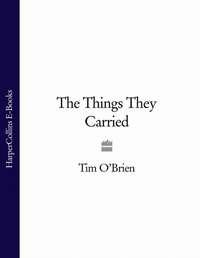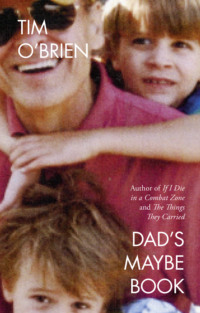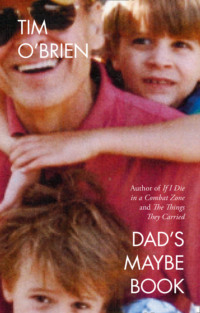
Полная версия
Northern Lights
‘That’s right.’
‘That’s what I thought.’ Again he raised his eyebrows. He was dressed in a starched lab coat. It didn’t seem to Perry that he’d changed at all since high school. Wolff was one of the Germans. There were Swedes and Finns and Germans, and Wolff was pure German – impeccable and stiffly manicured, greedy eyes, a bristling crewcut and a voice that rose like deep magic from his sunken little torso. Wolff was proud of the voice. Back in high school, when it finally changed, it saved him from an adolescence of constant scorn, pity, practical jokes and half-serious innuendo about his malehood. He now loaded the voice with authority, successfully straining out most of the German accent, always speaking slowly and only after long and apparently tormenting thought. ‘A relative,’ he said.
‘That’s about it. You got any more of this coffee, Herb?’
‘Right.’ He sighed, giving up. Wolff refilled their cups and wrote out a new bill and they sat quietly and listened while the Coca-Cola clock ticked. ‘I reckon you know Jud Harmor’s got cancer,’ he said.
‘I’ve heard that.’
‘It’s true.’
‘Did Jud tell you?’
Wolff shook his head. ‘Nope, but I heard it. I hear it’s bad, too.’
‘He’s tough.’
‘He’s old.’ Wolff was playing again with the salt and pepper shakers. ‘He ought to step down from being mayor if he’s got cancer like I hear he’s got. I don’t say he has to quit. I say he should quit. It’s for the better.’
‘I guess it is.’
When the Coca-Cola clock showed two minutes after eleven, Wolff got behind the counter and began making coffee for the church crowd. He still had the disjointed swagger that Perry remembered from high school, a sailor’s roll that joined with his deep voice to defy everything else about him.
‘Anacin and aspirin and all that stuff,’ Wolff was saying, talking to Grace like a teacher. ‘It’s made in these big vats, you know, and all it really amounts to is plain acid. And you know what acids are. Dangerous. You got to be careful.’
‘Why sell it?’ asked Grace.
‘Oh. Well, it is a medicine. That’s all I’m saying, honey. Aspirin is medicine and people forget that. I’m just saying you got to be careful because it’s not sugar. Not candy. Aspirin is a very potent medicine. Aspirin isn’t sugar. Sugar is organic, see? Sugar’s got carbons in it, but aspirin’s plain acid and acid is something you got to be careful of, see?’
Grace nodded. Then Wolff nodded. He straightened his lab coat and checked his watch against the Coca-Cola clock. ‘So,’ he said crisply, ‘bus gets in at eleven twenty. Who’s this relative anyhow?’
Grace laughed. ‘It’s no big secret, Herb. It’s Harvey. We just thought it would be best not to …’
‘Harvey?’
Grace smiled.
‘Harvey!’ Wolff wailed. He held his hands to his mouth like a girl. His voice sailed up an octave. ‘Harvey? Well this is … Harvey!’
‘It’s no secret,’ Grace said. ‘We thought he’d just want to get off the bus without any fuss.’
‘Geez,’ Wolff moaned. ‘Well, this is something. Harvey? Geeeezzzz. You should’ve told somebody. For Pete’s sakes. Harvey. Well, how is he?’ Wolff looked about the store. ‘For Pete’s sakes! You should’ve told us. He’s coming on the bus? Geez, I got to get some people here.’
‘I don’t think he wants that,’ Perry said. He decided to cut Wolff off fast. ‘Let’s just let it be a nice easy thing.’
‘We got to!’ Wolff wailed. ‘He’s coming home, isn’t he? Geez. I got to make some phone calls.’ He yanked his lab coat down, dusting it and hustling for the phone.
‘Herb. Forget it, will you?’
‘The whole town’s in church.’ Wolff banged the phone down and went out into the street and came back. ‘Geez, this is … I can’t believe any of this. Harvey. I just can’t believe it. He’s coming home. I mean, we got to get some people out for him, don’t we? How is he? I mean, how’s the eye and everything?’
‘He’s fine,’ Grace smiled. ‘We talked to him on the phone and he sounded cheerful and fine.’
Wolff rubbed his crewcut. ‘Well, we got to do something. Don’t we? Maybe … Maybe I ought to run over to the church and make an announcement or something.’
‘Forget it,’ Perry said.
‘What?’
‘Just forget it, Herb.’
‘But … I mean, shouldn’t we get some people here?’
‘No,’ Perry said.
Wolff frowned. He looked shaken. ‘At least the mayor?’
‘Nobody.’
‘Geez,’ Wolff moaned. ‘Somebody should be here when he comes. Don’t you think? If I’d known about it, why, I’ll tell you, I’d’ve had the whole council here. I’ll tell you.’
‘Leave him alone, Herb.’
Perry went outside and sat on the kerb.
The streets were dusty.
Jud Harmor’s pickup was gone now, but the two dogs were still there, curled in wait on the steps of Damascus Lutheran. Beyond the peeling buildings there was nothing but forest.
He cleaned his glasses and leaned back. Then he cleaned his glasses again. In a while Grace came out and sat with him.
‘Wolff still phoning people?’
‘Oh,’ she laughed. ‘I think I settled him down. He’s in there grinding fresh coffee for Harvey.’
‘Some creep, isn’t he?’
‘Paul.’
‘I’m sorry. You didn’t see the time in there?’
‘Few more minutes.’ She took his hand. ‘You all right now?’
‘Sure. I’m okay. I’m priceless. I’ll bet that damn bus is late.’
‘Shhhhh. You just relax and start smiling. Have a bright face.’
He gazed up Mainstreet to where the bus would turn in and hiss and stop. The street was silent. The heat seemed to absorb sound. Sitting on the kerb, he felt like a boy again, waiting to be picked up from school, or waiting in a stifling theatre for the curtain to draw up and the lights to fade and the movie to begin. He felt he’d been waiting a long time. He was restless. The long night had caught up with him and he needed a cigarette. He was restless. He needed a cigarette and the pack was empty. Grace sat silently, twisting her wedding band, toying with his hand until he pulled it away and stood up. Across the street and down a way, he saw the shoddy frame building where he had his own office. The Venetian blinds were down, forming a white backdrop for the lettering on the window: PAUL MILTON PERRY, and below his name, painted in orange, DEPARTMENT OF AGRICULTURE, COUNTY FARM EXTENSION. Sucking the Federal Titty. Harvey always stated the unstated.
‘Awful hot,’ Grace finally said.
‘Damn bus is late. I knew it.’
‘Shall I see what time it is?’
‘Yes. And get me some cigarettes. And make sure Wolff isn’t on that telephone again.’
He walked to the end of the block and back again. One of the dogs trotted over to be scratched. The town was dead. He could hear the muffled sound of the organ inside the church. The town did not particularly depress him, but at the same time he often wondered why anyone still lived there. Wolff was there to sell coffee and medicine. The barber was there to cut Wolff’s hair into a flat crewcut once a week. The grocer was there to sell food to the barber. The farmers were there, trying to grow corn in the forest to sell to the grocer, and Perry was there to keep the farms going, to tell them when to use fertilizer, to fill out subsidy applications and loan applications, to watch the Swedes try to grow corn on land meant for pine and Indians. He didn’t know. It didn’t make sense. Once he’d asked his father why they didn’t just move on to Duluth, and the old man went crazy, charging into one of his fiery sermons about the virtues of hardship and how Perry’s grandfather had built the house out of the forest’s own timber and how a town was like tempered steel and how a transplanted tree never grows as tall or as fine as one rooted in native soil. The lesson of the sermon, if not the logic, always stuck with Perry. The old man died and Perry stayed on. And Harvey got drafted. Old Harvey. Harvey was different. Ever since the old man died, Harvey talked about leaving the town, and one day with the help of the draft board he did leave. A confused time. Harvey the Bull. He was a bull but he was no soldier. As kids they hadn’t even played war games. Indians were better, better targets for games with their leather jackets, sour faces, bad teeth and greasy hair, Chippewa mostly. They’d stalked the Indians, crawled on bellies in the weeds behind the house, yelped and bellowed. But never war games. Nothing serious. Trapping games and capture-the-flag and forts in the forest, not far from Pliney’s Pond, snow forts in winter and tree forts in summer, great camouflage in the fall, but never war games. And no one in Sawmill Landing knew a damn about the war anyway. It wasn’t talked about in the drugstore. Then gangbusters, bang, old Harvey gets drafted, good old Bishop Markham and Herb Wolff on the draft board – sorry, Harvey’s number was up, something like that, proper optimism and good humour, a little sympathy, proper pride. Perry stayed out of it. Nothing he could do, and the war wasn’t real anyway, and, besides, it seemed somehow natural that a rascal and bull like Harvey was the one to go off to the war. In that sleepwalking, slothful departure there had been no time to counter the nagging thought that the speed of it all, the blinding foggy invisible force behind it, was a sure sign that Harvey would come home maimed. Because no one knew a damn about it. Vietnam was outside the town orbit. ‘A mess,’ was what people would say if forced to comment, but a mess was still not a war, and it did not become a war until Harvey went to fight in it. Two Indian boys went with him. Their picture was on the front page of the town paper, Harvey in the centre, grinning and posing, his arms wrapped around the two dull-eyed Indian boys. In September, one of the Indians got killed and the paper carried a short obituary with an American flag stencilled in. But even then it wasn’t really a war. It wasn’t a war until Harvey got himself wounded and the paper carried another front-page story, pictures of Harvey in his football uniform, pictures of the old house, pictures of Perry and Grace, a picture of the dead old man in his preacher’s robes, a long history of the family, and for a time the war was really a war, though even then it was all jumbled and formless. No sides, no maps to chart progress on, no tides to imagine surging back and forth, no real battles or victories or defeats. In the tangled density of it all, Perry sometimes wondered if the whole show were a masquerade for Harvey to dress in khaki and display his bigballed outdoorsmanship, proving all over again how well he’d followed the old man into the woods, how much he’d learned, to show forever that he was the Bull.
The dog trotted back to the church steps.
Perry sat on the kerb again, cleaned his glasses, leaned back. Tips of high pine poked over the store fronts.
Grace came out with cigarettes and coffee. ‘Eleven thirty,’ she said. ‘Herb says it’s always a little late.’
‘I just wish that bus would get in.’
Then he saw it. It was as though it had been there all along, poised in turn around the corner, waiting to be seen. He saw it and heard it simultaneously. It was the giant Greyhound. It might have been the same silver monster that took Harvey to war in the first place.
It swung off the tar road, changing gears and growling.
Herb Wolff hurried out. ‘There she is, there she is!’ he wailed. He brushed his coat and stood erect. ‘There she is, all right.’
The bus cleared the turn.
‘Sure wish everybody was here for this,’ said Wolff. ‘This is something. Harvey! I can’t believe it.’
Perry took a step and stood alone. The Greyhound’s brakes hissed and forms moved behind the tinted windows and Perry searched for familiar movements. The door opened with another strange hiss, and the great grey cave was transfixing dust and trembling. Perry peered into the tinted glass.
Harvey stepped off alone. He carried a black bag with white stitching.
‘Well, hey!’ he said.
Without seeing, Perry gave him a great hug.
‘Hey!’
‘Yeah, you look fine. You do!’
‘And my God, here’s Grace! Grace. You’re beautiful.’ They hugged and Grace was smiling and wet-eyed and Perry was grinning.
‘Yeah, yeah. You’ve got some tan there.’
‘Sure!’
‘You look great. You do, I can’t believe it.’
‘Skinny! Look at that.’
‘Hey, it’s old Wolff! How the devil is old Wolffie?’
‘This is something. It is. You look great, Harv. You do. This is really something.’
‘I’m fine. I am. Where’s my parade? Shouldn’t they have trumpets and flags and things? How’s my honey-Grace?’
Grace kissed him again, still clutching his arm. ‘Happy, happy,’ she said. ‘You’re so skinny, aren’t you?’
‘Skinny? Lean and mean. How’s my brother? How’s brother Paul?’
‘I’m fine. Here, let me have that bag. I can’t get over it, you look great. Really.’
‘I am great,’ Harvey said. ‘Now where the devil is everybody?’
‘Sunday.’
‘Sunday? Is it Sunday? Sunday! Incredible.’
‘Give me that blasted bag.’
‘Come on,’ Grace said. ‘Let’s get you home. Some skinny hero.’
Everybody started hugging again, then Harvey released the bag and Perry took it and they stood in a circle on the street. Harvey’s bad eye was barely noticeable. He was tall and too skinny. His voice had the old nasal tinkle. ‘Sunday!’ he said. ‘Some bloody day to come home on. Where’s old Jud Harmor? Thought sure old Jud would be here with bands and ticker tape and stuff.’
‘He’s around. Here, let’s get into the car and we’ll get you home. You did get skinny, didn’t you?’
‘Sure, and you got chubby. You look great anyway. And Grace. Grace is still a honey. And even old Wolffie looks good, so what we need is a good drink to celebrate. Hey, Wolffie! You got a nice drink we can all celebrate with?’
Wolff blinked and shook his head.
‘No bloody drink?’
‘No. Geez, I’m sorry. Really. Nobody said anything about … I would’ve had the whole town here if somebody just …’
‘No bloody drink? No parade, no drink. Where the devil is everybody? Some awful hero worship.’
‘Everybody’s in church, Harv.’
‘Some hero worship.’ Harvey grinned and pointed at his bad eye. ‘So, how you like my pretty souvenir? Better than a lousy limp, don’t you think?’
‘Doesn’t look bad at all.’
‘I’m thinking about patching her up. You know? A little class.’
‘Doesn’t look bad at all, Harv.’
‘Glad you like it. Now all we need is a drink and everybody’s happy. Are you happy, Wolff?’
Wolff vigorously shook his head, grinning.
‘Fine. Everybody’s happy.’
Grace took Harvey’s arm and walked him towards the car. Church bells began ringing. One of the dogs began to bark, sitting back on its haunches with its nose up towards the steeple. Perry was trembling. He opened the trunk and threw the bag in and slammed it shut.
‘Remind me never to come home again on Sunday,’ Harvey said.
‘Anytime is a good time. You look great.’
‘Glad I didn’t wear my uniform. Look plain silly coming home in a uniform and no parade.’ Harvey shook hands with Wolff, then stood with his hands on his hips and looked up and down Mainstreet. The bells were ringing loud.
‘Let’s get you home.’
‘So long, Wolffie,’ Harvey said. ‘You’re a helluva man. Good man. War’s over, baby.’
Wolff grinned.
Perry started the engine and backed up and drove up Mainstreet.
‘That weasel,’ Harvey said.
Perry awoke before dawn. He went to the pond, sat on the rocks, waited for daylight. Then he showered and dressed and had coffee and drove into town. It was still early and the shops were closed. He cruised up Acorn Street, past Addie’s boarding house. Her window was on the top floor but it was shuttered and there were no lights. He drove back up Mainstreet. It was Monday, there was nothing much to do. He unlocked the office, rolled up the blinds, sat at his desk. The pens were in their glass jar, papers were in folders, the desk was clean and in order, the folders were filed. He put his head in his arms. His mouth was dry from a night of drinking beer and laughing and listening to Harvey tell about the bus ride from Minneapolis, the hospital, a few things about the war.
After a time he got up to sweep the office. Then he switched on the ceiling fan. He typed out a loan application for a dumbeyed farmer named Lars Nielson. Then he made coffee. Then he put the application into an envelope and typed the address on to a sticker and stuck the sticker to the envelope, then he drank his coffee. There was nothing much to do. He should’ve become a preacher he thought. The town needed a good preacher. Stenberg, the crusty usurper. And Harvey was home. And Grace was happy and wanted a child. There was nothing much to do. He drank more coffee and passed the morning at the window, watching the town come to life, watching morning shadows come out of the eastern forest, pass over the town. He was melancholy but it was an entirely rational melancholia, nothing outright crazy about it. He should’ve become a preacher. And Harvey was home and Grace was happy, except she wanted a child, and the old man was dead, and Perry was thinking that things would have been better if he’d become a preacher. With the old man gone, the town needed a good preacher.
The ceiling fan spun round and round. He typed out soil reports, read the morning paper, then towards noon he gave up, locking the office and walking on to the street to mail the Nielson application. He felt flabby and restless. It was another hot day. The tips of some of the pines were turning brown. Standing on the post office steps, he looked up the street and wondered what to do next. A tractor turned off Route 18. Black smoke coming from a pipe on the hood obscured the farmer’s face. Perry decided to find Addie for a long lunch.
She was not in the library. He browsed the stacks, waiting, finally taking a world atlas into the reading room where he smoked and looked at the maps and pictures. It was something he and Harvey used to do, a passion for maps and exotic unseen places. He sat over the atlas a long time. Except for the fans and a woman stacking books behind him, the library was quiet.
He was not sure how long he slept, if at all, but suddenly he was wide awake, surprised to find himself in the chair. The atlas had fallen to his lap. He’d been thinking about Harvey’s bad eye. Thinking or dreaming, he wasn’t sure. The eye was brilliant blue, rolling untethered like a marble, opaque and shining as though lighted from within. The dead eye seemed to have its own life, rolling about in the socket, reckless and eager and full of trouble and blue light.
Feeling a little foolish, Perry blinked and rubbed his eyes and returned the atlas to the shelf.
It was nearly one o’clock.
The woman stacking books looked at him suspiciously.
He grinned at her and shrugged. ‘Just waiting for Addie,’ he said.
‘Snoring, too.’
‘I’m sorry. You don’t know what time Addie’s coming in?’
‘I guess I know, all right, Mr Perry,’ the woman said. She was eyeing his shirt. He looked down and saw a cigarette burn the size of a quarter. ‘Addie’s off today, anyhow,’ the woman said. ‘Monday, you know. You oughta know that by now, Mr Perry.’ She didn’t smile. ‘She works Saturdays so she’s got Monday off, you oughta know that by now.’
‘I forgot.’
He bought a case of beer and some groceries. Walking back to the car, he came across Jud Harmor. Jud saw him first. The old mayor was standing in front of the town hall, hands in his hip pockets, brown shirt and brown cotton pants, the straw hat pushed back on his skull.
‘Been lookin’ for you,’ Jud said.
‘Hey, Jud.’ Perry shifted the groceries to his other arm and prepared to listen.
‘I been lookin’ for you.’
Perry nodded and waited. There was a bright sun on Jud’s face. Under his chin, a large cancer splotch cut down the throat and disappeared under the old man’s shirt. He was lean and tough-looking and sly-looking and he looked like Perry’s father sometimes. At a certain age, all the old men began to look alike.
‘Anyhow,’ said Jud, ‘I been lookin’ for you. Wolff says Harvey’s back.’
‘Yesterday.’
Jud nodded, looking up Mainstreet.
‘Came on the bus yesterday,’ Perry said. ‘He called a few days ago – last week.’
Jud nodded, still surveyed the hot street. ‘Guess somebody should’ve told me.’
‘Sorry, Jud. We were just thinking he’d want to ease back in. You know? No big show or anything.’
‘Somebody should’ve told me, anyhow. I should’ve been there.’
Perry nodded. ‘Sorry.’
Jud squinted up the street. There was no traffic. The two lonely dogs were sleeping on the steps of Damascus Lutheran. ‘Anyhow,’ said Jud, ‘I should’ve been there. Harvey being a hero and all.’ He laughed into a cough.
‘Oh, I wouldn’t say he’s exactly a hero, Jud. I wouldn’t say that. He got his eye hurt and that’s about the end of it really.’
‘Shit,’ the old mayor said, ‘you think I don’t know that? Bound to happen sooner or later. Like your old man, you know, same damn thing. Anyhow, he’s gonna want a parade now.’
‘What?’
‘A parade, for Chrissake! I guess he’ll want a parade now, horns and sirens and floats.’
‘Oh.’
Jud squinted and coughed and shook his head. He brought up a wad of phlegm from his throat, leaned forward and casually spat into the street. ‘Well, ahhhh, I guess you can tell your pa I’ll get that parade arranged. I guess I can do that much.’
‘He’s dead, Jud,’ Perry said carefully.
Jud squinted. ‘Thought he just got himself wounded in the eye?’
‘No, my old man. He’s dead.’
Jud laughed. ‘Shit! You think I didn’t know that?’
Perry grinned. He shifted the groceries again.
‘Anyhow,’ said Jud, ‘you get the word to Harvey, okay?’
Jud coughed and spat a big bubble of mucus into the street. ‘Shit! Wolff says it’s the first thing of Harvey asked about … a parade. Don’t worry, I’ll get it for him, ram it right through, no problem at all.’
‘There’s no need for it, Jud.’
‘Just tell him, son.’ The old mayor sighed. ‘You better get on home then. Groceries there are leakin’ all over you.’ He pushed the straw hat forward. ‘You say hey to your pa, now.’
Perry grinned. ‘Okay, Jud.’
Jud cackled. ‘Your pa’s dead!’
‘Yeah.’
I never said he was crazy, you know.’
‘I know, Jud.’
‘What about your ma?’
‘She’s dead, too, Jud.’
‘Jesus.’ Old Jud spat into the street. ‘Dropping like flies, aren’t they? Well, what about Harvey?’
‘Harvey’s fine.’
‘Mother of Mercy.’
‘Right.’
‘Don’t let your old man shove you around, you hear me?’
‘Okay, Jud. Thanks.’
‘Not Harvey either.’
‘Okay.’
‘So long now, Reverend.’
Perry grinned and saluted and started off, then stopped. ‘Jud?’
The old man was staring after him.
‘Jud, you haven’t seen Addie?’
Jud Harmor pulled off his hat to think. His skull was shiny.
‘Addie. The girl who works in the library. You haven’t seen her today?’
‘Addie,’ Jud said, looking about. ‘Newcomer.’
‘A year or so. She works in the library. Just a kid. You call her Geronimo sometimes.’
Jud grinned. ‘Shit, you mean ol’ Geronimo. Some ass, right? Sure, I know her all right. You’re talkin’ about ol’ Geronimo.’
‘You haven’t seen her?’
‘Wish so,’ Jud said. ‘Wish I had. Some ass, don’t you think? No disrespect, Reverend. What you want ol’ Geronimo for?’
‘Nothing. Just looking for her. Thanks, Jud.’
‘Aren’t thinkin’ of converting her? That’d be some awful wasted hunk of redskin ass, I’ll say that.’
‘Don’t worry, Jud.’
‘No disrespect, Reverend.’
‘So long, Jud.’
‘Say hey to your pa, now.’
Perry smiled and waved.
‘He’s dead!’ Jud hollered.







